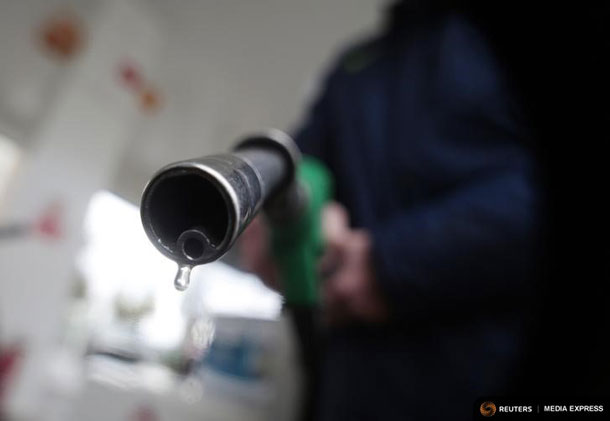
As the campaign to lump fossil fuels in with tobacco advertising gathers pace in Europe, how will companies and policymakers respond?
* Demand for ban echoes campaign against tobacco firms
* Some European cities already moving to limit publicity
* Fossil fuel companies say their ads aid climate debate
By Arthur Neslen
BRUSSELS – CLIMATE – (Thomson Reuters Foundation) – A push for a Europe-wide ban on advertising and sponsorship by fossil fuel companies is the boldest salvo yet in a campaign by environmentalists who accuse oil firms of “greenwashing” and a history of undermining climate change science.
Just as the tobacco industry was punished with publicity bans amid allegations it concealed the harmful effects of smoking, Greenpeace and 20 other green groups are demanding an end to ads for coal, oil and gas firms, carmakers and airlines.
“The fossil fuel firms also copied the smoking companies’ strategies when they fed into climate denial,” said Bas Eickhout, the Dutch Green MEP and vice-chair of the European Parliament’s environment committee.
“It’s time we copied what was done with cigarette ads.”
Greenpeace and 20 other green groups launched the “European Citizens Initiative” in a bid to haul down ads for businesses linked to climate-warming fossil fuels – whether online, in newspapers or on billboards.
If their petition demanding a ban gets a million signatures, the European Commission will have to consider tabling a new law.
In the same way that some tobacco manufacturers have fought advertising curbs around the world, industry experts suggested that fossil fuel firms may initially take a combative stance towards publicity restrictions.
“Ad bans are blunt instruments that rarely achieve their intended purpose,” said Stephan Loerke, chief executive of the World Federation of Advertisers, which counts fossil fuel firms among its members.
“They can also restrict the ability of companies to bring to market and grow cleaner energy options, and this should be encouraged,” he added.
The European Business Aviation Association’s Secretary-General Athar Husain Khan said the industry ought to be exempt from any ban because it was committed to biofuels and carbon-offsetting, and provided a “clear benefit to society”.
Oil major Shell said that to grow its greener options, it needed to let customers know about the “lower-carbon solutions we offer now or are developing so they can switch when the time is right for them”, a spokesman said.
Similarly, Finnish energy company Fortum’s spokesperson Elina Kokko said its advertising aimed to “drive the change for a greener world.”
“An advertising ban would … decrease the visibility of climate change itself and energy companies’ role in mitigating it,” she said, adding that a ban would probably affect Fortum’s “brand awareness”.
‘UNSTOPPABLE MOMENTUM’
But moves to curb publicity by fossil fuel-dependent businesses are already underway, suggesting further restrictions may be introduced as governments face public demands for stronger action to fight climate change.
“The momentum for a complete ban on fossil fuel advertising and sponsorship in Europe is starting to feel unstoppable,” Yannick Jadot, the French Green candidate in next year’s presidential election told the Thomson Reuters Foundation.
Sixteen NGOs in Brussels announced a boycott of media events sponsored by fossil fuel firms in September, after Britain’s Guardian newspaper disavowed adverts by coal, gas and oil firms in 2020.
Fossil fuel ads were banned in Amsterdam’s metro system and city centre last December, while a similar prohibition has been proposed by social democrats in Sweden’s Stockholm City Council.
A proposed French climate and resilience bill would also tighten restrictions on fossil fuel advertising, which climate activists say is heavy on “greenwashing”.
An analysis commissioned by Greenpeace found 63% of adverts by six fossil fuel companies surveyed on Facebook, Instagram, Twitter and YouTube between December 2019 and April 2021 contained misleading information about their green credentials.
Shell, Fortum and Sweden’s largest oil refiner, Preem, were singled out as the worst offenders, for each dedicating 81% of their reviewed advertisements to overstating efforts to protect the environment.
France’s TotalEnergies – which was also among the firms surveyed, said renewable energy would make up almost a quarter of its investment in the next four years.
“Calling this ‘greenwashing’ doesn’t feel appropriate, does it?” said spokesperson Ornela Bore.
Loerke suggested, however, that oil companies might be willing to reconsider their approach to advertising in light of increasing pressure over the issue.
“The industry is currently revising good practice in this space and we expect there to be increased scrutiny in the coming months, not least with regulatory proposals expected from the EU,” he said.
A Commission legislative proposal pushing firms to substantiate green claims is expected in December.
Tamara Daltroff, director-general of the European Association for Communication Agencies, warned that an outright ban could cause collateral damage.
“Independent media is often funded by advertising and any restrictions or bans could have unintended consequences on media pluralism, and democracy,” she said.
(Reporting by Arthur Neslen; Editing by Helen Popper






